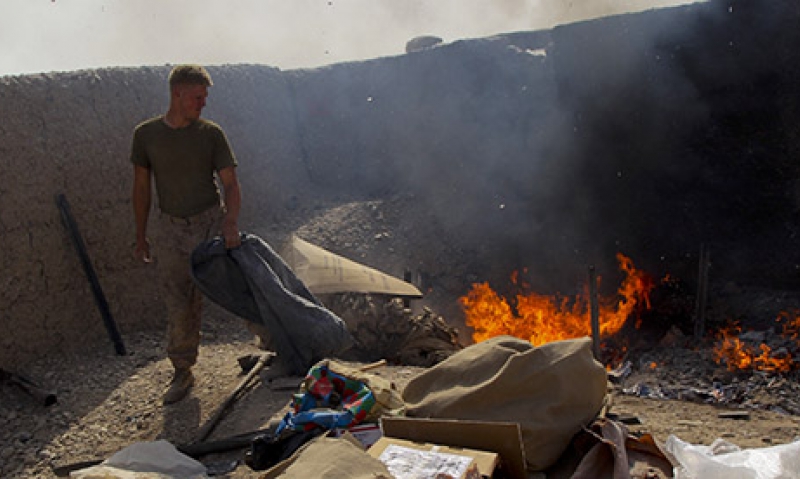
Report states insufficient data makes it impossible to say whether emissions can cause long-term health effects.
Insufficient data on servicemembers' exposures to emissions from open-air burn pits for trash on military bases in Iraq and Afghanistan is one of the reasons why it is not possible to say whether these emissions could cause long-term health effects, according to a new Institute of Medicine report. High background levels of ambient pollution from other sources and lack of information on the quantities and composition of wastes burned in the pits also complicate interpretation of the data.
During deployment to a war zone, military personnel can be exposed to a variety of environmental hazards, many of which have been associated with long-term adverse health outcomes such as cancer and respiratory disease. Many veterans returning from Iraq and Afghanistan have health problems that they worry are related to their exposure to burn pits on military bases. Special attention has been focused on the burn pit at Joint Base Balad (JBB), one of the largest U.S. military bases in Iraq and a central logistics hub.
Based on its analysis of raw data from air monitoring efforts at JBB conducted by the U.S. Department of Defense, the committee that wrote the report concluded that levels of most pollutants of concern at the base were not higher than levels measured at other polluted sites worldwide. Moreover, research on other populations exposed to complex mixtures of pollutants, primarily firefighters and workers at municipal waste incineration plants, has not indicated increased risk for long-term health consequences such as cancer, heart disease, and most respiratory illnesses among these groups.
Even so, the committee pointed out shortcomings in research and gaps in evidence that prevented them from drawing firm conclusions, and it recommended a path to overcome some of these limitations. Lack of information on the specific quantities and types of wastes burned and on other sources of background pollution when air samples were being collected meant it was difficult to correlate pit emissions, including smoke events, with potential health outcomes. Different types of wastes produce different combinations of chemical emissions with the possibility of different health outcomes in those exposed. Moreover, it is hard to determine whether surrogate populations such as firefighters experience exposures to pollutants and durations of exposures similar to those of servicemembers stationed at JBB.
The report recommends that a study be conducted to evaluate the health status of servicemembers from their time of deployment to JBB over many years to determine their incidence of chronic diseases, including cancers, that tend not to show up for decades. In addition, it recommends a tiered approach to gathering data to better characterize exposures to the complex mixture of burn pit emissions in light of the presence of other sources of pollutants in the ambient environment.
Given the variety of hazards and substances to which military personnel are exposed in the field, service in Iraq and Afghanistan in general - rather than exposure to burn pits only - might be associated with long-term health effects, the committee noted. A specific concern is the high ambient concentrations of particulate matter generated by both human activities and natural sources. Risks may be greater for those who are especially susceptible to health problems, including individuals with asthma or those who encountered high concentrations of substances or had prolonged exposures.
- Veterans Healthcare

